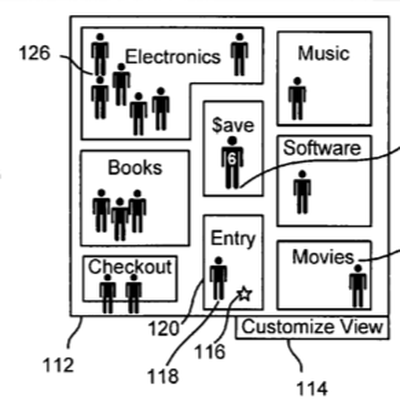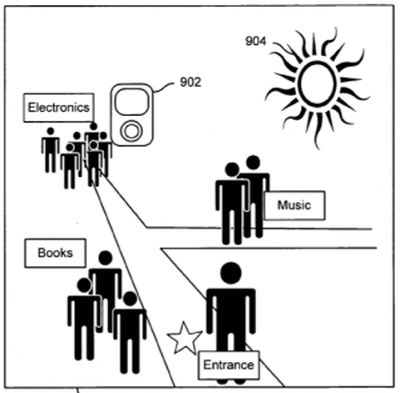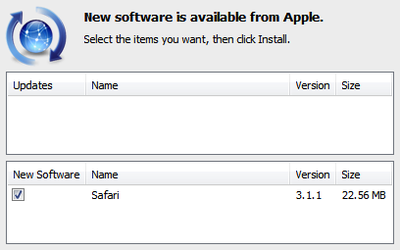Apple posted revenue of $7.51 billion and net quarterly profit of $1.05 billion, or $1.16 per diluted share, both Apple records for the second fiscal quarter. This compares to $5.26 billion revenue and $770 million profit, or $.87 per diluted share from the year ago quarter. Gross margin was 32.9 percent, down from 35.1 percent in the year-ago quarter. International sales accounted for 44 percent of the quarters revenue.
Sales notes from the quarter:
- 2,289,000 Macs shipped (51% unit growth, 54% revenue growth)
- 10,644,000 iPods shipped (1% unit growth, 8% revenue growth)
- 1,703,000 iPhones sold
"Were delighted to report 43 percent revenue growth and the strongest March quarter revenue and earnings in Apples history," said Steve Jobs, Apple's CEO. "With over $17 billion in revenue for the first half of our fiscal year, we have strong momentum to launch some terrific new products in the coming quarters."
"We're thrilled to have generated $4 billion in cash flow from operations in the first half of fiscal 2008, yielding an ending cash balance of $19.4 billion," said Peter Oppenheimer, Apples CFO. "Looking ahead to the third quarter of fiscal 2008, we expect revenue of about $7.2 billion and earnings per diluted share of about $1.00."
While Apple beat expectations for the second quarter, Apple's guidance for the third quarter falls below the street's expectations for profit of $1.09 a share on $7.23 billion in sales.
The corresponding quarterly conference call will begin shortly at 5pm EDT. Continue reading for highlights of the call and the Q/A session.Conference Call Notes:
- Pleased to report highest March quarter revenues and profit in history.
- Very strong Mac demand.
- Revenue growth accelerated to 43%, up from 21% last year.
- Retail sales up 74%...number of visitors in retail stores up 57%.
- Mac sales up 3.5 times the rate of PC industry as a whole.
- 3-4 weeks of Mac channel inventory at quarter's end.
- Very pleased with customer response to iPod touch.
- iPod shuffle sales were down until price drop, then accelerated.
- 73% share of MP3 player market.
- iTunes Store with 85% of legal music download in US. Movie rental service well-received.
- 200,000 developers have downloaded iPhone SDK. One-third of Fortune 500 companies have contacted Apple about the program.
- Retail stores: 208 stores. Looking forward to opening first stores in Australia, China, and Switzerland.
- $19.4 billion in cash. Generated $4 billion in cash over the last two quarters.
- Q3 Outlook: Targeting $7.2 billion revenue, gross margins of 33%, earning of $1.00 per share.
Q&A:
Q: Gross margin good, but why down a bit? Confident about 33% prediction for next quarter?
A: Gross margin better than had been predicted. DRAM and NAND pricing hit historic lows. LCD and other components pricing stable. Decline was partly due to Leopard entering second quarter: decreased sales of high margin product. Also partly due to iPod shuffle price cut.
Q: iPhone availability tightening. Can you grow this going forward? Any shortages?
A: We will hit 10 million for the year. We expected more of a quarter-over-quarter decline than we got, leading to some shortages. "Significant" number of unlocked phones contributing to demand.
Q: How is the education market?
A: Up 35% institutional and individual...highest growth rate in education in eight years. This quarter is a big K-12 quarter. Surpassed Dell in educational portables sales last year. Always worried about tight educational budgets, but no issues seen yet.
Q: 10 million iPhone sales goal...is a move to 3G technology affecting this forecast?
A: We don't comment on unreleased products, but we are of course always looking to roll out to more locations.
Q: Forecast for new retail store openings? Will half of them be international as projected?
A: Had 208 total stores at end of quarter, 27 of those outside U.S. Increased forecast to 45 new stores for the year. Won't be quite half international stores, but it will be significant.
Q: Effect of Leopard sales on gross margin?
A: Leopard revenues $170 million in January quarter, $40 million in March quarter. Also iLife and iWork entering third quarter of sales and thus seeing decreasing sales. Also, low-margin iTunes Store revenue was a more significant percentage of total revenue for the March quarter.
Q: You've built up a lot of cash. Any plans for it?
A: No comment on that at this time.
Q: Can you talk about iPhone pricing with European carriers?
A: Our European carriers are free to price the iPhone as they wish. No further comment on that.
Q: Plans for maintaining a 2.5G iPhone alongside future 3G models?
A: We don't comment on unreleased products.
Q: Availability of products during March quarter?
A: MacBook Air experienced constrained supplies initially, but reached supply/demand balance by the end of the quarter. iPhone demand outstripped projections and thus supply.
Q: Any comment on acquisition of P.A. Semi?
A: We occasionally buy smaller technology companies, and we don't make a practice of commenting on our plans for them.
Q: Can you reconcile comments about iPhone demand outstripping supply with price cuts seen in Europe? Was there a balance issue?
A: Shortages were most significant in Apple retail stores, which are more susceptible to people buying multiple units, possibly for export. Once units are designated for a carrier, they can't be easily shifted elsewhere. Overall, we expected a sharper quarter-to-quarter decline than we saw. No comment on Europe specifically.
Q: Comments on number of unlocked iPhones? Why the reticence in quantifying that?
A: We aren't really comfortable with putting out a number on that due to uncertainty. We have gone out of our way to classify it as "significant" though.
Q: Why did the average selling price for portables decline?
A: The decline was small and reflected slight shifts in product mix.
Q: Any more to say about MacBook Air? Number of Windows users buying MacBook Airs?
A: No data on Windows users. Popular among a wide variety of consumers. Very little cannibalization of other models.
-End of conference call

















